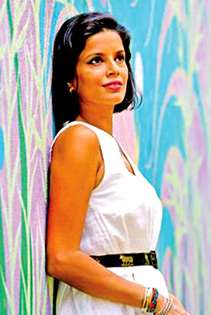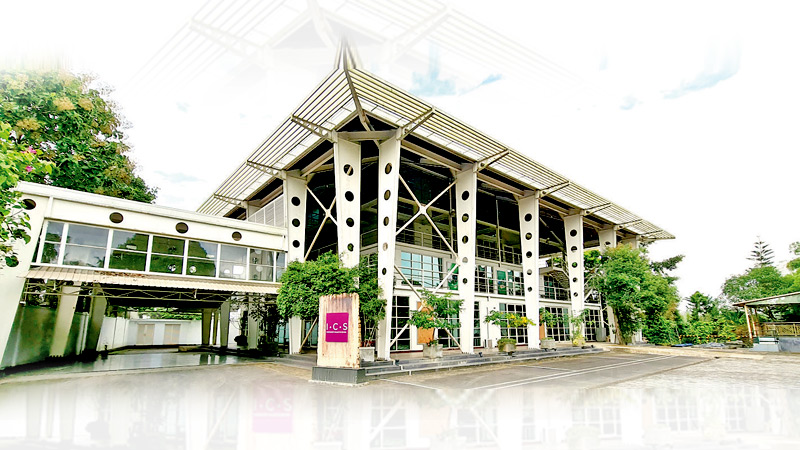This week ‘Youth Observer’ reached out to a teacher, an artist and mother, Yasodara Pathanjali, who has initiated an initiative that will change education as we know it. She opened her modern learning school this week that is a step ahead of the traditional primary education.

Yasodhara Pathanjali
In conversation with Yasodara, here’s what we found out:
Q: What is the alternate school concept that you have in mind?
A: I think that it is time that we take away the term “alternative”. Alternative implies that it is somehow experimental, or not fully fledged. When all the research in the world about education firmly proves that traditional education doesn’t work, and much more urgently now, that it cannot prepare our children for the massive global disruption in the employment sector that is predicted by all the world’s top analysts to hit by 2030. We are 6 years away from that.
Q: What will be the name of your school? And why did you pick that name?
A: “Independent Collective School”. I didn’t want to brand the school with my branding, because that would have given parents and students the wrong impression that this is a school where my own thinking, or my opinions, are prioritized.
I wanted to make sure that it was clear from the outset that even though I am the co-founder, this is an independent educational institution that our students can thrive in, independent from my views and from those of the mainstream. Basically a place that incubates freedom to explore and questions for students, so that they can truly learn.
The word “Collective” supports that same element, in that I think ICS has to be much more about community, building and growing together in respect, than about me or my leadership. I believe that the school needs to develop its own identity that is rooted in our students. It was really hard to work out a name, but once we saw these words together, both my husband and I felt that this conveyed the messages that we feel are the core of everything that ICS will do.
Q: What is traditional education doing to proactively and with a clear scientific vision to change the outcomes for our young generation?
A: So for me we are now entering an age of “modern” education, I prefer to not call it alternative. At ICS, we are very focused on this element of preparing students for the post-2030 world. As projected by the IFTF, 86% of the jobs available after 2030 haven’t been invented yet. So as parents and as educators our joint effort has to be in working together to ensure that our children are able to not just survive but thrive in the aftermath of the AI Tsunami.
One of the keys to that, as mandated by the UNICEF 2019 report of education for the future, is to move away from subject based education to interdisciplinary education and to focus on building skills, such as collaboration, communication, critical thinking, creativity and digital lit eracy.
The best and most established way of achieving this, from an education perspective, is via PBL (Project-Based Learning). This is not a new system, this is something that came from the university system in the 1960s and has been gaining acceptance and respect all around the world.
Q: What is the difference between traditional methods of education and alternate methods of education?
A: When we look at the history of education, sadly there is no part in its development that was rooted in children, their development, human psychology or in the science of learning. Independent thought and personal development were rooted out, on purpose, when the traditional education system was established, as the need of the time was to create an army of workers for the industrial age.
JD Rockefeller who founded and funded the American General Education Board in 1902 was very clear in this when he said “I don’t want a nation of thinkers. I want a nation of workers”. Another of his contemporaries and a board member of the General Education Board, FT Gates is quoted as saying “In our dream, we have limitless resources and the people yield themselves with perfect docility to our moulding hands”. And we still do that to this day.
And while that may have been enough to achieve financial success for some of our children through the ages, if we ignore the countless billions that it leaves behind as failures, this approach will not provide financial stability to our children beyond 2030. That is well researched and documented.
Beyond 2030 for our children to succeed in the world of AI, we need thinkers, we need independent and “non-docile” people. This is the same for other global crises like the environment, war, economic collapse etc. Further in Sri Lanka we cannot wait for a top down system change. As in every country, we have to be that system change. Because our children should not pay the price for the inertia of the system infrastructure.
Q: How is Alternate education going to help develop skills and emotions of a child?
A: School within alternative Education aren’t all the same. There is a lot of diversity. And we need that diversity. Because children, and adults, are diverse. So we need that difference represented in education.
When we try to force each and every one of us to learn and behave the same we have, well documented, disasters. There are such incredible schools that are outside of the mainstream all over the world, including Sri Lanka. You get forest schools, nature schools, free (freedom based) schools, more spiritual schools, more tech schools and so much more. That diversity allows for parents and students to make choices that suit them, which in turn leads to much greater levels of success for the future.
Within this diverse pool, what we need is for parents and educators to be united in celebrating and supporting each and every child to succeed. With no child left behind. No child labelled slow or a failure. No child left without a good future. And for me that is what ICS is about.
Q: Talk about your key objective in this project?
A: Key objectives for ICS are to deliver a future proof education to all our students. To prepare them for the very uncertain and disrupted world that we will step into in six years. To ensure that they get their paper qualifications (We offer all the Cambridge qualifications) and that their skill and personal development is aligned to the UNICEF education mandate.
Q: And tell us about the process on how this school came into place? starting as an idea and now as a fully-fledged school opening soon?
A: I have had this idea for a school for as long as I could remember. I have always believed that education that took into account the child and their unique strengths was something that was missing in the world. My initial dream was to start a boarding school in Sigiriya when I turned 60.
But over the years, particularly because of social media, I have spoken to hundreds if not thousands of parents, who have all shared with me their dissatisfaction with the education system, how their children are being harmed and made to suffer. There were many who asked me to start a school, as they have seen how I educate my own children.
So towards the end of 2022 this idea started forming in my head that maybe it was time that I looked into this. And so for the last year I have done nothing but work on ICS. It has been a long and tough journey. A lot of learning, a lot of hoops to jump through.
We are just two months away from opening now, and we are at a point where the response has been so high that we have to consider closing enrolments for the first batch, and I m just so looking forward to welcoming all the students on 4th January. I think that will be such a magical day.
Q: How do you plan on promoting your school as an ideal form of education?
A: I don’t believe in anything “ideal”. We are humans and ideals don’t work for us. Because we are all so different. What is ideal for me, cannot be ideal for you. So with education it’s important to always keep in mind that it s about finding the right solution for the child. That the focus always goes to the child. Not the educational system, not the founder or principal of the school, not the schools branding, nothing other than the student and their needs and their future.
ICS will speak for itself in the success of its students. And our focus has to remain on ensuring that we deliver the very best for them, instead of promoting the school.
A few days ago we had a small ceremony at the school property with some of the enrolled parents and children, and to see those children already loving the physical space, connecting with each other, asking questions and being excited to come to such a child focused space, that alone is what we need.
When we deliver the best, there is no need to promote.
Q: What will the student experience be like at ICS?
A: Students and parents are able at ICS to choose an attendance time that is aligned to their daily routine. This is intended as a way to help parents who are working, so that their working day is not disrupted by inconvenient school pick up and drop times.
All the parents and students we have spoken to are very excited about the no uniform policy too. This will reduce the burden on parents and also give the students the freedom they seek in a modern world.
Students are also empowered at ICS. To share their ideas, to voice their needs, to tell us when something is wrong. They are able to pursue their interests and learn key skills via the topics that they enjoy. They are able to take formal Cambridge assessments but in a nurturing and positive environment. They are celebrated for who are they are, and ICS takes that responsibility to work with them to forge their best, most successful, path with them very very seriously.
Q: Who are the resource persons involved in the school?
A: We have three groups of resource people at the moment, Administrative and Planning, that includes me, Subject Matter Experts, who we are recruiting from different areas of industry to inform and guide the cutting edge curriculum at ICS, and then the Facilitators (Teachers).
Facilitators are being recruited for their qualifications and their diverse interests and proficiencies. What that means is that they cannot just join ICS if they only have a qualification in one area. They need to have wide knowledge and be able to prove it to us.
Then they have to undergo a US based PBL Curriculum, that I m adapting to ICS, so that they can be fully trained in the PBL methodology. This is particularly key to designing Project Based Learning.









